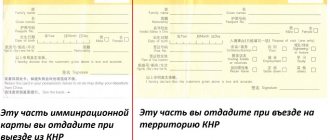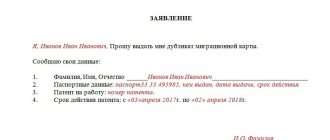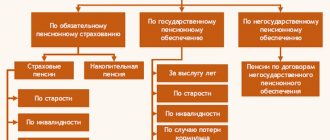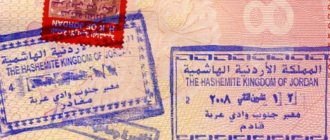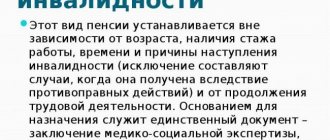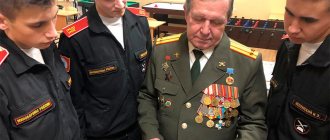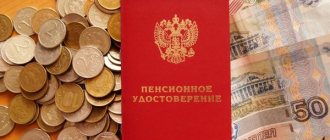The concept of state migration policy until 2025
The political leadership of Russia has defined a system of views on the content, principles and main directions of state activity in the field of migration. On June 13, the Concept of the state migration policy of the Russian Federation for the period until 2025 was approved by President Vladimir Putin . Until 2025, it is planned to carry out three stages of implementation of the migration direction.
The Kremlin press service reported that the concept was developed taking into account domestic and international experience in the migration field. Its creation is necessary to outline the strategic guidelines of migration policy against the background of the expected economic, social and demographic development of the country, its foreign policy and integration processes with the CIS countries, the Customs Union and the Common Economic Space. The concept also takes into account global trends of globalization.
Recently, the importance of migration processes in the socio-economic and demographic development of Russia has increased, since over the past twenty years the natural population decline has been partly compensated by migration growth. The Federal State Statistics Service made a forecast regarding the future population size until 2030 based on the results of the All-Russian Population Census and according to the dynamics of demographic processes in recent years. According to this forecast, the country's population at the beginning of 2025 will be 142.8 - 145.6 million people (high and medium options).
Migration of highly skilled workers is now an important source of economic growth and prosperity for host countries, and countries compete internationally for such workers. Now the Russian leadership has set itself the goal of creating conditions and mechanisms for attracting specialists of various profiles, entrepreneurs and investors on a long-term basis.
Russia's migration attractiveness extends mainly to citizens of the CIS countries, and compared to other countries receiving migrants, Russia is losing. It is obvious that the emigration outflow from the country can become a big problem. And the new generation of migrants from the CIS countries has a lower level of education, knowledge of the Russian language and qualifications.
We also have to deal with negative trends in internal migration. Russians, compared to residents of other countries, have much less territorial mobility. Large expenses for resettlement, the low development of the transport network, the limited rental housing market and its high cost, and the low incomes of the majority of the population explain the lack of migration opportunities among Russian citizens. At the same time, the main internal migration vector remains movement from the East to the Center and to the Moscow region, which increases the imbalance in the distribution of the population throughout the country.
In addition, the President believes that Russian migration legislation does not fully meet the needs of the country’s economic, social and demographic development. Therefore, the number of illegal migrants is growing, numbering from 3 to 5 million annually.
To solve migration problems, three stages of implementation of the state migration policy are envisaged.
As part of the first stage, which should be completed before 2015, it is planned to create centers for facilitating immigration to the Russian Federation and medical examination of immigrants both in Russia and abroad. It is necessary to create an infrastructure for the residence of labor migrants on the basis of public-private partnership, an infrastructure for the integration and adaptation of labor migrants, including information and legal support centers, courses for studying the language, history and culture of Russia, and conducting selective research on issues of internal and international migration.
Then, at the second stage of implementation of the concept in 2016-2020, the Russian leadership plans to summarize and analyze the law enforcement practice of legal acts of the Russian Federation that support state migration policy. And by 2021 it is expected to stop the migration outflow of the population from the regions of Siberia and the Far East.
As part of the third stage, which will take place in 2021-2025, the effectiveness of migration policy will be assessed, and the main strategic guidelines, priorities and directions of migration policy will be clarified. By 2026, the political leadership intends to ensure a migration influx of population to the regions of Siberia and the Far East.
Natalia Verbitskaya
The concept of state migration policy of the Russian Federation: realities and prospects
On the eve of the anniversary date of the Federal Migration Service of Russia, President of the Russian Federation V.V. Putin approved the Concept of the state migration policy of the Russian Federation for the period until 2025.
Today and in the long term, the problems of population migration are relevant and resonant. The number of migrants in the world and in Russia is increasing from year to year, migration processes have become systemic and more complex. Since 2000, about 7 million people have moved to Russia. Thanks to this, the natural population decline was compensated and some sectors of the labor market were raised, primarily construction, services, as well as trade, agriculture and other areas. At the same time, insufficient control and the pursuit of cheap labor by individual entrepreneurs leads to an increase in illegal migrants. “This provokes outbreaks of xenophobia and national conflicts, which is dangerous for our state,” D.N. Medvedev noted at a meeting of the Russian Security Council, adding that many problems remain with the adaptation of migrants and the protection of their rights and freedoms.
The absence for a long time of the Concept of State Migration Policy led to the fact that, in the author’s opinion, Russia did not have a holistic system of views on the content and main directions of implementation of the country’s strategic course in the field of migration. This situation led to the fact that migration policy and adopted normative legal acts were characterized by extremes: either complete liberalization of external migration and taking on exorbitant obligations to migrants (this was the “sin” of the first editions of the laws “On Refugees” and “On Forced Migrants”), or an excessive tightening of the state’s position towards migrants and, as a result, violations of human rights. In addition, momentary, inconsistent regulations were often adopted, which “managed” to be generally delayed, and in particular – hastily adopted, which required amendments to recently adopted acts. This is indicated, for example, even by the title of the law “Federal Law of January 6, 2007 No. 2-FZ “On Amendments to the Federal Law “On Amendments to the Federal Law “On the Legal Status of Foreign Citizens in the Russian Federation” and on the recognition of lost force of certain provisions of the Federal Law “On Amendments and Additions to Certain Legislative Acts of the Russian Federation.”
The need to develop and adopt at a high state level the Concept of state migration policy, which would define the essence, purpose, priority areas, principles, main tasks, mechanisms, stages and expected results of the implementation of state policy in this area, was an urgent requirement of the time, which was repeatedly stated publicly question from the author of this article, including on the pages of “Country Capital”.
Initially, the state migration policy of Russia was formed through the creation of an administrative and management system, the development of a legal framework, the development and implementation of migration programs financed by the federal budget. For the first time, the main directions of migration policy were formulated in the republican long-term program “Migration”, approved by the Resolution of the Council of Ministers of the Russian Federation of May 18, 1992. The program also contained a brief analysis of the migration situation, an expert forecast of its development, formulated the fundamental principles of migration policy and outlined practical measures. Thus, the Program was both a means of shaping migration policy and an instrument for its implementation.
Later, the goals, principles and objectives of migration policy were reflected and clarified in the Federal Migration Program (FMP), approved by the Decree of the President of the Russian Federation of August 9, 1994. The FMP was repeatedly adjusted, clarified and approved by resolutions of the Government of the Russian Federation for subsequent short-term periods until 2001 Over these years, Russia has managed to fulfill a major humanitarian mission and create a fairly extensive regulatory framework for regulating migration processes: issues of citizenship, exit and entry, stay; refugee and forced migrant status; rights and obligations of persons who have received the status, etc. From a closed state, Russia has turned into an active participant in international migration processes.
Russia has assumed obligations under many international legal documents in the field of migration; acceded to the main UN human rights agreements. On November 13, 1992, the Law on the accession of the Russian Federation to the 1951 UNHCR Convention Relating to the Status of Refugees and the 1967 Protocol relating to the Status of Refugees was adopted. Intergovernmental agreements were concluded on the regulation of resettlement processes and the protection of the rights of displaced persons within the CIS.
Undoubtedly, it would be incorrect to say that all problems were solved or at least many of them were foreseen - this was a new experience in the formation of statehood, in many ways an experience of trial and error. It should be recognized that the legal regulation of migration processes for many years was of a reactive, “emergency” nature. In response to the aggravation of the migration situation and the massive influx of various categories of migrants into the country, separate, urgently prepared acts were adopted at the legislative and subordinate levels.
At the same time, attempts to develop an independent Concept have been made since the late 90s of the last century - back when the Federal Migration Service of Russia was a civil department at the ministry level. With the active participation of public organizations, the settlers themselves and the scientific community, the first draft of the Concept was prepared and widely discussed. However, a “departmental leapfrog” prevented the completion of this work. Since February 1999, the migration department has been undergoing a series of reorganizations and changes in administrative affiliation that have lasted for many years, when the Russian Federal Migration Service began to be “transferred” from one department to another, and five heads have changed in three years.
The cancellation in June 2002 of the already prepared, scientifically worked out next Federal Migration Program for the next five years, which detailed the items of budget financing and contained information on the planned rule-making activities of the state, led, among other things, to the fact that migration policy as a whole became less transparent to society.
In February 2002, the Federal Migration Service of Russia was restored and transferred to the jurisdiction of the Ministry of Internal Affairs of Russia. As noted by the researchers, the negative consequences were immediate. Continuity and consistency in the activities of the migration service was lost, the Russian Ministry of Internal Affairs had no experience in developing migration policy, did not have the skills to work with migrants and NGOs, the activities ceased to be transparent to society and acquired a strictly forceful nature.
Work on the Concept resumed, but with different approaches. The confrontation between two positions was sharply revealed: while the scientific and public community argued and proved that Russia was vitally needed migrants, the Federal Migration Service of the Ministry of Internal Affairs of Russia, now within the structure of the law enforcement agency, introduced various restrictive measures. In the struggle of ideas during that period, the last ones, the “siloviki,” won.
The laws adopted have become restrictive; the meaning and purpose of migration policy is the fight against illegal migration. On January 1, 2003, the Federal Law “On the Legal Status of Foreign Citizens in the Russian Federation” came into force, which regulated the procedure for the stay and work activities of foreign citizens on the territory of Russia. A job quota system was introduced. A number of laws have been adopted or amended to tighten the regime for immigrants in Russia.
As N.A. Voronina rightly notes in her report at a meeting of the Academic Council of the Institute of State and Law of the Russian Academy of Sciences, “We have to admit that, in general, Russia’s migration policy is highly politicized and ethnicized. Functional, economic and legal approaches to migration have often been replaced by political campaigns to incite migrant-phobia.”
In 2003, an interdepartmental working group prepared a draft Concept of State Migration Policy. The project passed all approvals with interested departments and constituent entities of the Russian Federation, was reviewed and approved by the Government Commission on Migration Policy, at Parliamentary hearings in the State Duma, where about 800 representatives of forced migrant associations, public and non-governmental organizations, and federal bodies took part in the discussion of the Concept. executive power, scientific institutions. However, ultimately, this project was rejected by the Government of the Russian Federation.
The only document defining policy in the field of migration until June 2012 was the Concept of Regulation of Migration Processes in the Russian Federation, approved by order of the Government of the Russian Federation dated March 1, 2003. This document mainly provided for the fight against illegal migration, which was viewed primarily as “challenges and threats.” It did not define the essence and structure of migration processes in Russia, did not highlight the main stages of the implementation of the Concept, and was generally of a declarative nature.
The concept of “regulation of migration processes,” in our opinion, is significantly narrower than the concept of “state migration policy of the Russian Federation.” The level of acceptance of this document is questionable. In accordance with the Constitution of the Russian Federation, state policy is determined by the President of the Russian Federation. In addition, the term “approved” does not indicate mandatory implementation of the Concept for executive authorities.
The author shares the opinion of researcher and specialist Yu.V. Roshchin, who believes that modern migration policy is a policy of the current time, not aimed at the future - it is “momentary, situational.”
In order to correct the current state of affairs, the Security Council of the Russian Federation, by decisions of March 17, 2005 and March 18, 2006, instructed the interested federal executive authorities to develop a draft Concept of the state migration policy of the Russian Federation. Thus, work on the project has been carried out since 2005.
The currently approved Concept of State Migration Policy of the Russian Federation for the period until 2025 was developed by an Interdepartmental Working Group, which included representatives of federal executive authorities, scientists from the Higher School of Economics, Moscow State University, other educational and academic institutions, as well as representatives of business structures , such as, for example, “Opora Rossii”. In 2011, the Draft Concept was considered at meetings of the Public Council under the Federal Migration Service of Russia, the State Duma Committee on CIS Affairs and Relations with Compatriots, the Public Chamber, the Government Commission on Migration Policy, as well as in the Government Office and the Administration of the President of the Russian Federation.
After extensive discussion, on April 27, 2012, under the chairmanship of D.A. Medvedev, a meeting of the Security Council of the Russian Federation was held on the issue “On the Concept of the State Migration Policy of the Russian Federation and measures for its implementation.” The report was made by the Director of the Federal Migration Service of Russia K.O. Romodanovsky. At this meeting, the Concept of the state migration policy of the Russian Federation until 2025 was approved and submitted for approval to the President of Russia. As noted earlier, the President of the Russian Federation V.V. Putin on June 13, 2012 approved the Concept of the state migration policy of the Russian Federation for the period until 2025 (hereinafter referred to as the Concept).
The approved Concept is a system of views on the content, principles and main directions of the Russian Federation’s activities in the field of migration; it defines the goals, principles, objectives, main directions and mechanisms for implementing the state migration policy of the Russian Federation. The concept was developed in accordance with the Constitution of the Russian Federation, federal constitutional laws, federal laws and other regulatory legal acts of the country in conjunction with the Concept of the state national policy of the Russian Federation, the Concept of demographic policy of the Russian Federation for the period until 2025, the Concept of long-term socio-economic development of the Russian Federation until 2021, The National Security Strategy of the Russian Federation until 2021 and other strategic planning documents, as well as generally accepted principles and norms of international law and Russia’s obligations arising from international treaties in the field of migration.
The development of the Concept was carried out taking into account domestic and international experience in the field of managing migration processes and was determined by the need to identify strategic guidelines for migration policy in connection with the expected prospects for the economic, social and demographic development of the Russian Federation, the foreign policy of the Russian Federation and integration processes in the territories of the member states of the Commonwealth of Independent States States, the Customs Union and the Common Economic Space, as well as with global trends of globalization. The implementation of this Concept should help resolve problems that impede the effective regulation of migration and reduce sociocultural, economic and political risks associated with the influx of migrants.
The structure of the Concept consists of 7 sections: 1. General provisions. 2. Conditions for the formation and implementation of the state migration policy of the Russian Federation. 3. Goals, principles, objectives and main directions of the state migration policy of the Russian Federation. 4. International cooperation. 5. Information and analytical support for the implementation of the state migration policy of the Russian Federation. 6. The main mechanisms for implementing the state migration policy of the Russian Federation. 7. Stages of implementation of the state migration policy of the Russian Federation.
The concept defines the following goals of the state migration policy of the Russian Federation:
a) ensuring the national security of the Russian Federation, maximum security, comfort and well-being of the population of the Russian Federation;
b) stabilization and increase in the permanent population of the Russian Federation;
c) helping to meet the needs of the Russian Federation economy for labor force, modernization, innovative development and increasing the competitiveness of its industries.
The principles of the state migration policy of the Russian Federation are:
a) ensuring the rights and freedoms of man and citizen;
b) inadmissibility of any forms of discrimination;
c) compliance with national and international law;
d) harmonization of the interests of the individual, society and the state;
e) interaction between federal government bodies, government bodies of constituent entities of the Russian Federation and local governments, development of institutions of social partnership and civil society;
f) protection of the national labor market;
g) a differentiated approach to regulating migration flows depending on the goals and duration of stay, socio-demographic and professional characteristics of migrants;
h) taking into account the peculiarities of regional development;
i) openness and accessibility of information about migration processes and decisions made in the implementation of the state migration policy of the Russian Federation;
j) scientific validity of decisions made.
The Concept establishes the following objectives of the state migration policy of the Russian Federation:
a) creating conditions and incentives for the resettlement of compatriots living abroad, emigrants and certain categories of foreign citizens to the Russian Federation for permanent residence;
b) development of differentiated mechanisms for attracting, selecting and using foreign labor;
c) promoting the development of internal migration;
d) promoting educational migration and supporting academic mobility;
e) fulfillment of humanitarian obligations in relation to forced migrants;
f) promoting the adaptation and integration of migrants, the formation of constructive interaction between migrants and the host community;
g) combating illegal migration.
In accordance with the goals and objectives of the state migration policy, its main directions are formulated, which include the following blocks of problems:
a) creation of conditions and incentives for compatriots living abroad, emigrants and certain categories of foreign citizens to move to the Russian Federation for permanent residence;
b) development of differentiated mechanisms for attracting, selecting and using foreign labor in demand by the Russian economy;
c) promoting the development of internal migration of citizens of the Russian Federation;
d) promoting educational (study) migration to the Russian Federation and supporting academic mobility;
e) fulfillment of humanitarian obligations in relation to forced migrants;
f) promoting the adaptation and integration of migrants, the formation of constructive interaction between migrants and the host community;
g) combating illegal migration.
The concept defines the main directions of international cooperation of the Russian Federation in the field of migration, including:
— expanding interaction with international organizations;
— creating conditions for the free movement and employment of citizens in accordance with international agreements;
— harmonization and unification of migration legislation of the Russian Federation;
— formation of a legal framework for cooperation with foreign countries for the purpose of exchanging information on migration issues;
— development of unified approaches to the issue of readmission of citizens of third countries;
— development of multilateral and bilateral cooperation in the field of migration.
It is also envisaged to conclude international agreements:
— in the field of migration, promoting the influx of foreign investment into the Russian Federation;
— with the competent authorities of foreign states on cooperation in the fight against illegal migration;
— on the reception, return and transit passage of persons illegally staying on the territory of the Russian Federation and the territories of foreign states (on readmission);
— on the organized attraction of foreign workers;
— on mutual recognition of medical documents.
The Concept pays great attention to information and analytical support for the implementation of the state migration policy of the Russian Federation. For these purposes it is provided:
a) improving the provision of public services and the performance of government functions in the field of migration, including using information technologies (infrastructure that ensures information and technological interaction of information systems used to provide state and municipal services in electronic form);
b) improving the methods of obtaining, generating, storing and using fingerprint information about foreign citizens with the subsequent use of the received information by the competent authorities, including for law enforcement purposes;
c) expanding the use of information technologies to analyze the migration situation and ensure the implementation of the state migration policy of the Russian Federation, including: the development of a statistical observation system based on administrative population registration systems and a system of sample studies on internal and international migration issues; improving mechanisms for collecting, storing, processing and disseminating information in the field of migration; information support for various migration programs and monitoring of their effectiveness;
d) conducting research and development to analyze and forecast the migration situation, monitor and evaluate the effectiveness of various migration programs;
e) scientific support of changes in the instruments and mechanisms of state migration policy of the Russian Federation.
The main mechanisms for implementing the state migration policy of the Russian Federation are:
a) further improvement of the legislation of the Russian Federation in the field of migration, taking into account the norms of international law;
b) development of international cooperation of the Russian Federation in the field of migration, harmonization of migration legislation of the Russian Federation and unification of statistical accounting in this area within the framework of interstate associations;
c) inclusion of tasks and activities for the implementation of the state migration policy of the Russian Federation in state, federal and regional programs;
d) taking into account the tasks of the state migration policy of the Russian Federation when forming federal and regional budgets, concentrating financial and material resources on the implementation of priority areas and tasks of the state migration policy of the Russian Federation;
e) formation of priority directions of the state migration policy of the Russian Federation for various types of regions, taking into account the emerging migration situation;
f) improving the system of interaction between federal government bodies, government bodies of the constituent entities of the Russian Federation, local government bodies and civil society institutions in the field of migration;
g) constant monitoring and analysis of migration processes occurring on the territory of the Russian Federation and their impact on the socio-economic, demographic and other aspects of the country’s development, as well as subsequent adjustment of specific measures of the state migration policy of the Russian Federation;
h) development of scientific research in the field of migration.
The undoubted advantages of the Concept include the specification and definition of the main stages of the implementation of the state migration policy of the Russian Federation: the first stage - 2012-2015, the second - 2016-2020, the third - 2021-2025.
Carrying out an effective state migration policy plays an important role in ensuring national security, socio-economic and demographic development, and contributes to maintaining stability in society.
A step-by-step plan for the implementation of the Concept of the State Migration Policy of the Russian Federation until 2025 will be approved by the Government of the Russian Federation. The concept is designed to intensify the processes of internal migration in the country and increase the economic mobility of the population, significantly expand the opportunities for resettlement to Russia for permanent residence of compatriots living abroad, certain categories of foreign citizens, as well as ensure the development of differentiated mechanisms for attracting, selecting and using foreign labor .

